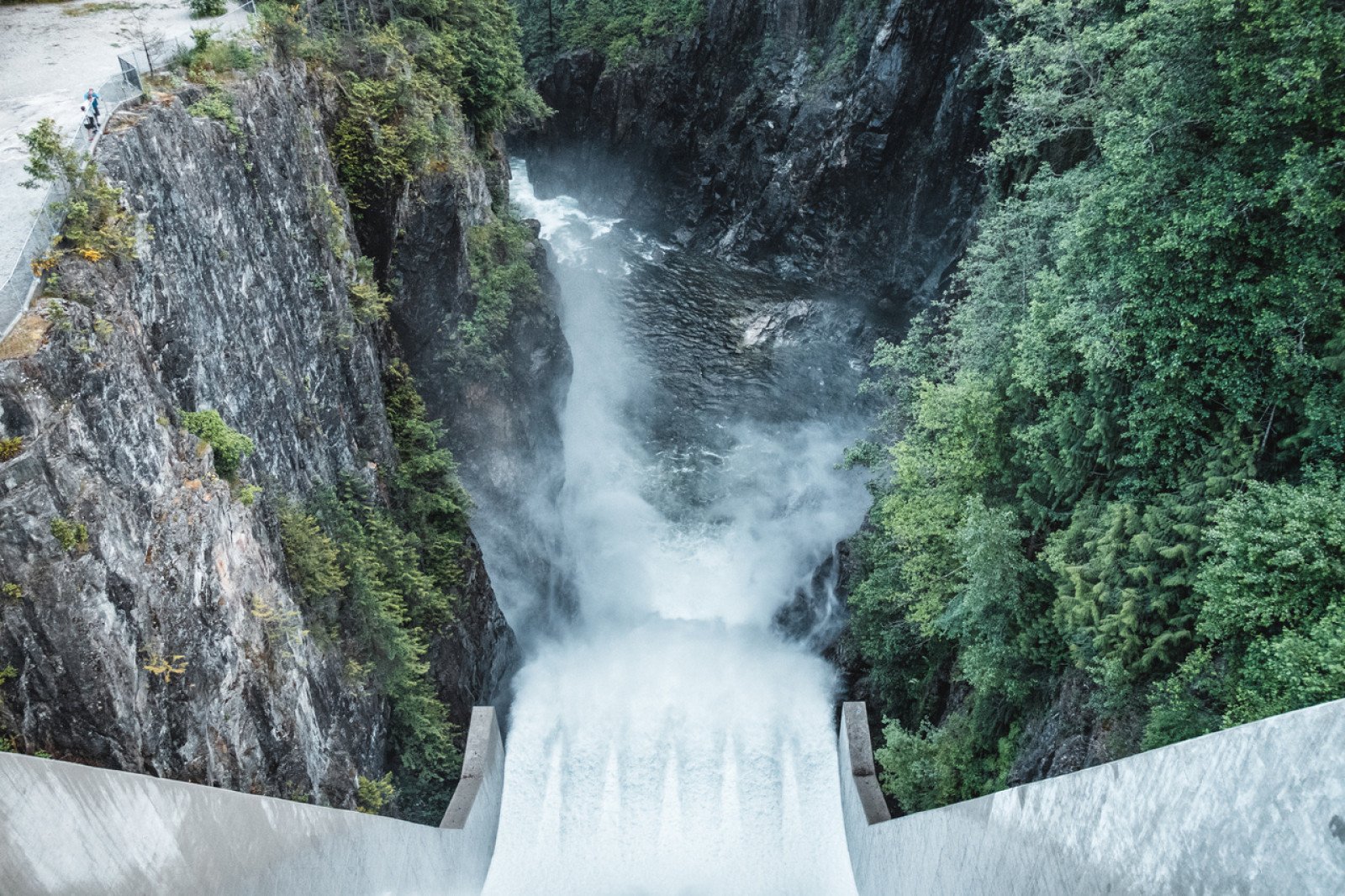How does hydroelectric power impact Indigenous communities?
Investigate the various impacts of hydropower projects on Indigenous communities.

Overview
In this activity, students consider the various ways hydroelectric projects impact Indigenous communities.
Instructions
What you'll need
- "Hydroelectric projects dashboard" worksheet, one copy for each student
- "Impacts of hydroelectric projects" handout, one copy for each group
- "Opportunities, challenges, I wonder" worksheet, one copy for each group
- Provide each of your students with a copy of the "Hydroelectric projects dashboard" worksheet. Discuss the question and then ask them to mark a position on the dashboard given what they currently know and understand about the opportunities and challenges of using water to generate electricity for Indigenous communities.
- Encourage students to share their initial decision and thinking with the class.
- Organize your students into small groups (2-3 students) and provide each group a copy of the "Impacts of hydroelectric projects" handout.
- Ask groups to sort the impact statements into economic, environmental, social, and other categories. Alternatively, assign each group one of the impact statements to categorize.
- Encourage students to re-visit their initial decision on the dashboard and to share their thinking.
- Provide each group with a copy of the "Opportunities, challenges, I wonder" worksheet. Ask groups think through and categorize each of the impact statements.
- Invite students to share their decisions and thinking with the class.
- Guide students’ attention back to their worksheet and their initial decisions. Ask students to decide if hydropower projects benefit Indigenous communities, this time using information from this activity to guide their thinking.
Modify or extend this activity
Extensions
- Invite students to select one of their “I wonder” statements for further inquiry and research.
- Ask students to inquire into possible ideas for addressing a challenge selected from the list.
Curriculum Fit
Grade 7 Science
Big idea
- Earth and its climate have changed over geological time
Content
- Electricity:
- Generated in different ways with different environmental impacts
- Evidence of climate change over geological time and the recent impacts of humans:
- Physical records
- Local First Peoples knowledge of climate change
Curricular competencies
Questioning and predicting
- Demonstrate a sustained intellectual curiosity about a scientific topic or problem of personal interest
- Make observations aimed at identifying their own questions about the natural world
- Identify a question to answer or a problem to solve through scientific inquiry
Processing and analyzing data and information
- Apply First Peoples perspectives and knowledge, ways of knowing, and local knowledge as sources of information
- Construct and use a range of methods to represent patterns or relationships in data, including tables, graphs, keys, models, and digital technologies as appropriate
- Use scientific understandings to identify relationships and draw conclusions
Evaluating
- Exercise a healthy, informed skepticism and use scientific knowledge and findings from their own investigations to evaluate claims in secondary sources
- Consider social, cultural, ethical, and environmental implications of the findings from their own and others’ investigations
Applying and innovating
- Contribute to care for self, others, community, and world through personal or collaborative approaches
- Generate and introduce new or refined ideas when problem solving
Communicating
- Communicate ideas, findings, and solutions to problems, using scientific language, representations, and digital technologies as appropriate
Assessments
Throughout the activity, consider how well students:
- Apply their understanding of the ways electricity generation can negatively impact the environment and communities.
- Recognize the benefits of hydroelectric energy as a clean energy source.
- Recognize the importance of science in adopting thoughtful and reasonable positions on environmental issues.
- Are able to self-correct and extend their thinking from the beginning of the lesson to the end.
- Pay close attention to appropriate details.
- Use relevant scientific terminology correctly to support their conclusions.
Teaching Notes
How this activity was developed
These materials were created with guidance from Indigenous educators, subject matter experts and thought leaders to help draw upon important teachings, learnings, and Indigenous perspectives.
For centuries, the traditional western view of water has often been focused on its value as a resource. Indigenous people have a unique relationship with the waters of British Columbia. Since time immemorial, water has played a sacred role and is seen as a living entity. How water is used must be carefully considered with a view towards not just the immediate need and impact, but the needs and perspectives of generations to follow.
We are dedicated to deep listening and respectfully highlighting Indigenous ways of knowing in the materials we provide B.C. educators. If you have any feedback for us on these activities, or suggestions for others, please email schools@bchydro.com. We would love to hear from you.
About the artist
The design of the worksheets in this activity was a collaborative effort with Indigenous artist Kelli Clifton. Kelli Clifton was born and raised in Prince Rupert, British Columbia and is Gitga’at from the community of Hartley Bay. Clifton is interested in using her artwork as a form of storytelling—especially in relation to her Ts’msyen language (Sm’algyax), her coastal upbringing and her experiences as an Indigenous woman. Clifton currently lives in her home community where she continues to practice her art and teaches Sm’algyax at a local high school.
Learn more about Clifton's art on her Facebook page.
BC Hydro’s commitment to reconciliation
BC Hydro exists to serve British Columbians by providing clean, reliable and affordable electricity. We recognize that maintaining and developing the system has impacts on the lives and interests of Indigenous People. To support our move towards true and lasting reconciliation, BC Hydro will acknowledge past wrongs, listen to Indigenous perspectives and seek shared understanding with First Nations communities and governments.
Learn more about our Statement of Indigenous Principles.







